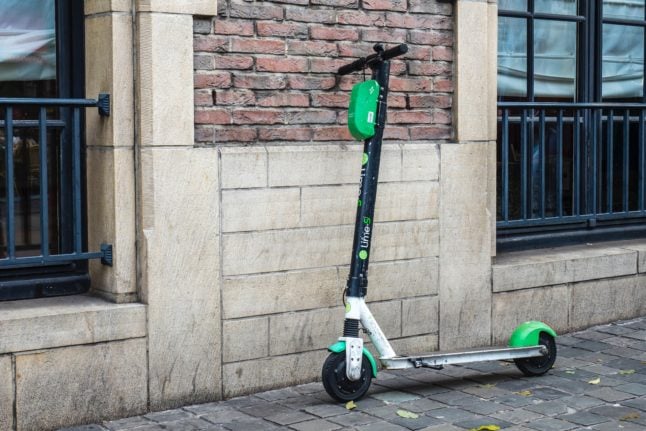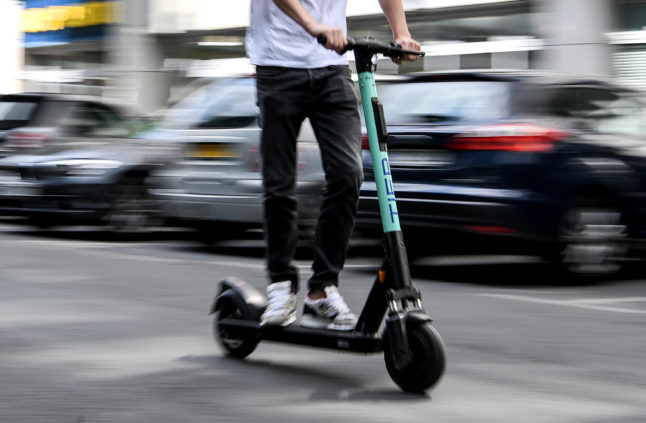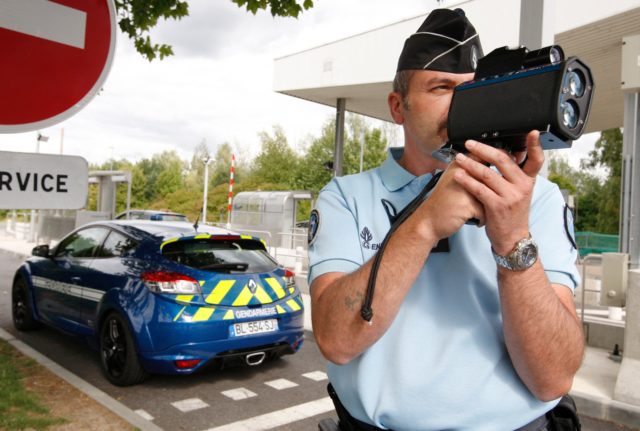Whether in Berlin, Frankfurt or Hamburg, it’s impossible not to spot electronic scooters in the busiest parts of the city, often strewn on the sidewalk for the next renter to unlock with an app.
But new statistics are causing many to question the safety of their use – and if Germany should ban the increasingly popular motorised vehicles.
The number of traffic accidents involving e-scooters has increased almost five fold since 2020, according to data published on Tuesday from Germany’s Statistical Office.
Whereas 92 road accidents were recorded in 2020, in 2022 there were a total of 442 road accidents (up from 282 in 2021).
In 69.7 percent of the cases, the e-scooter drivers themselves were found to have caused the accidents.
Incorrect use and the influence of alcohol or other intoxicating substances were the main causes of accidents.
READ ALSO: EXPLAINED: The rules for riding an e-scooter in Germany
‘Too fast’
Michael Mertens, vice-chairman of the German Police Union (GdP), said that more safety measures on e-scooters needed to be put in place.
“From our point of view, effective options for more safety must be examined, including higher fines, intensified instruction or an alcohol ban (while driving them),” Mertens told the the Redaktions Netzwerk Deutschland (RND) on Wednesday.
“E-scooters are too fast,” he added. At 20 kilometres per hour – their speed limit in Germany – an accident could have “serious consequences”.
“A partial success would be to restrict the speed of the scooters to 15 km/h in principle,” Mertens said.
The problems are similar all over Germany, he said. He pointed to a lack of parking for the vehicles, which leads to them being disposed of in the centre of pedestrian zones.

Furthermore, “the feeling of freedom on the scooters…can lead to a lack of care for road safety issues,” Mertens said.
“This is a motor vehicle,” said Baden-Württemberg’s Interior Minister Thomas Strobl (CDU) at the presentation of the statistics.
Even though they are readily available everywhere in the cities, they are not toys, he added, pointing out that inexperienced users are usually unable to safely manoeuvre at a speed of 20 kph.
Will Germany follow the lead of Paris?
On April 2nd, a clear majority of residents in Paris – or 89 percent – voted against rental e-scooters amid increasing concerns about their safety and a lack of space to store them.
READ ALSO: Paris votes in favour of ban on e-scooters
The ban will go into effect in September. On Monday April 3rd, the German Association of Cities spoke out against a full ban for Germany, but rather in favour of “clear rules of the game” in the future.
The federal states should “give all cities the option of requiring a special use permit for e-scooters in public spaces”, said Deputy Chief Executive Verena Göppert.
Then the cities could choose which providers are allowed to rent out their scooters and put clear rules in place.
Germany is currently the world’s second-largest market for e-scooter rental after the US, and anyone over the age of 14 is allowed to rent one out.



 Please whitelist us to continue reading.
Please whitelist us to continue reading.
While lowering the speed ( preferably by adjusting the device so it can’t exceed 15 km/hr) is a step in the right direction and better than nothing, they should be banned . Those of us who are old and less spry are in danger. My husband has had several close calls from these things. If you are walking with children, it can also be dangerous. Most folks who use them are not attentive to pedestrians.